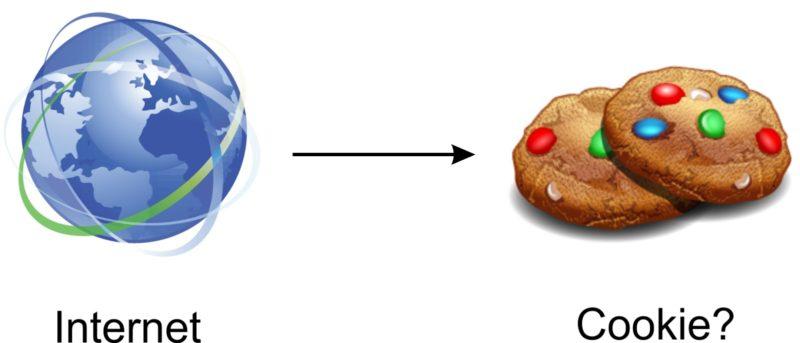Will not be using other web tracking tools after eliminating cookies: Says Google

Alphabet Inc.’s Google, on Wednesday, made a declaration promising that the company won’t use or build any other web tracking tool to track its users on the internet as it starts eliminating out cookies in chrome in the year 2022.
At the start of 2020, Google had announced that it is likely to join Firefox and Safari in blocking third-party cookies, which constantly enabled online ads on different pages. However, contrasting to the default features of blocking third-party cookies on these browsers, Google had decided to come up with a new technical solution to replace cookies. Google had received a lot of criticism for using cookies to track down the web browsing history of users and then using that to serve them personalized ads.
What Are Cookies And How Do They Work?
Web cookies, or sometimes called HTTP cookies, are nothing but small text files that are stored in the web browser directory of a user. The text file contains information about the web browsing activity of a user. So when you visit a particular site, the website sends cookies to your computer and your computer, then, stores those cookies inside a folder in your web browser.

What Is The Purpose Of Browser Cookies?
The browser cookies allow websites to access their user’s visit history and activity. Now as many criticisms as this feature faces, it does necessarily have a negative purpose behind it. Like, for example, the whole concept of online shopping is based on the principle of cookies. For instance, when you are trying to buy something online and you add something to your cart and shift to another site for a while, the website stores that choice of yours or the information in the form of cookies so that when you are back, your selected items are still there in the cart. Now when we look at it this way, if cookies would not have been there, the process of buying anything online would have been quite a task and sometimes it would even have been considered as impossible.
How Safe Are These Cookies?
Cookies are usually considered pretty much safe and are not likely to transfer any kind of virus or malware to your system because the data inside a cookie remains constant and doesn’t change when it travels so therefore it rarely has any effect on how your system runs or functions. However, though, in some cases, some sites use viruses disguised as cookies. For example, “supercookies”, which get permanently stored on your system and there is no way you could delete them. Then there comes “zombie cookies” that have a special feature of recreating themselves even after being deleted, making them harder to tackle. Sometimes, third-party cookies can also pose a privacy threat to the users.
What Are The Plans Made By Google About Third-Party Cookies
In a blog post issued by David Temkin the Director of Product Management, Ads Privacy and Trust on the 3rd of March 2021, the company said that its main agenda has always been to provide relevant ads to its users across the internet. However, as it seems, this has led to a transfer of the consumer’s data to thousands of companies usually through third-party cookies. This has made the consumers lose the amount of trust that they have with the company, consumers have now started to believe that everything that they do is being tracked down and that they have no privacy of their own. This has also made most of the users believe that this breaching of privacy is kind of overshadowing the benefits that the cookies bring along. Therefore, the company had decided to remove the support that it had been providing to third-party cookies on chrome and had started working on Privacy Sandbox to protect the data of the users while still allowing results for publishers and advertisers. Also, the blog said that the company has been getting a lot of queries regarding Google thinking of getting into the ad tech industry or not, so to make it explicitly clear the company said that after the elimination of third-party cookies, it is not thinking of building any other alternative for tracking their activities and nor are they planning to do so in any of their products. The company also took out some time to mention that their web products would be powered by privacy-preserving APIs which won’t have any stand on tracking the individual however it will still provide results for publishers and advertisers.
Some ad tech firms are also developing initiatives such as ‘Unified ID 2.0′, which will be based on the customers’ email id that they may provide if they wish to share their data online and that is how the advertisers and publishers will be able to access their data. To address this, Temkin, in the blog post, said that there might be some providers who would offer an identity to users to track their web activity but Google would not promote this as they believe that these solutions are not capable of meeting customers’ privacy expectations nor will these solutions hold any grounds for regulatory restrictions.
The company believes that building a strong and healthy relationship between customers and the brands is very important for a business to run and to provide such a level of support while also taking into consideration the privacy demands of its users becomes their main agenda. Google has promised that they will support the solutions that bring in such type of direct relationship between brands and advertisers and consumers by keeping the internet open and accessible to all while at the same time respecting the privacy of its users.




